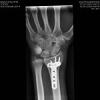Work In East Perth?
Announcements
-
Similar Content
-
Latest Posts
-
Did a conversion on my rb20 with rb25 cam and pulley, controlled it with a solenoid (forgot the port diameter of the solenoid) and made an oil port on the cam cap to lower pressure in the journal. Difference is day and night, the rb20 isn't dogshit down low anymore, not a powerhouse but this had add much welcomed torque down low. Boost build a bit sooner and torque rise way more when it start building boost. Only need to deactivate the VTC past 6500/7000rpm. Knowing how it help with only 2L, having it on 2.6L it should be a mod to think about early on as it gives a lot of performance on most on the rev range.
-
https://www.nengun.com/hks/valcon-rb26-v-cam-system no controller but most will use ECU to control anyhow
-
Not too sure, the throttle body has 4separate plugs going to it. Im not sure if the throttle is driven by cable and the motor is for traction, cruise and something there light blue one is TPS. i don't understand why the throttle won't open with the cable until about 3/4 on them only moves the valves very slightly
-
Not familiar with that car at all....but that code is for the traction control. Does it have a 2nd throttle in series with the first, like the R34 Neos do, to make the traction control happen?
-





Recommended Posts
Create an account or sign in to comment
You need to be a member in order to leave a comment
Create an account
Sign up for a new account in our community. It's easy!
Register a new accountSign in
Already have an account? Sign in here.
Sign In Now